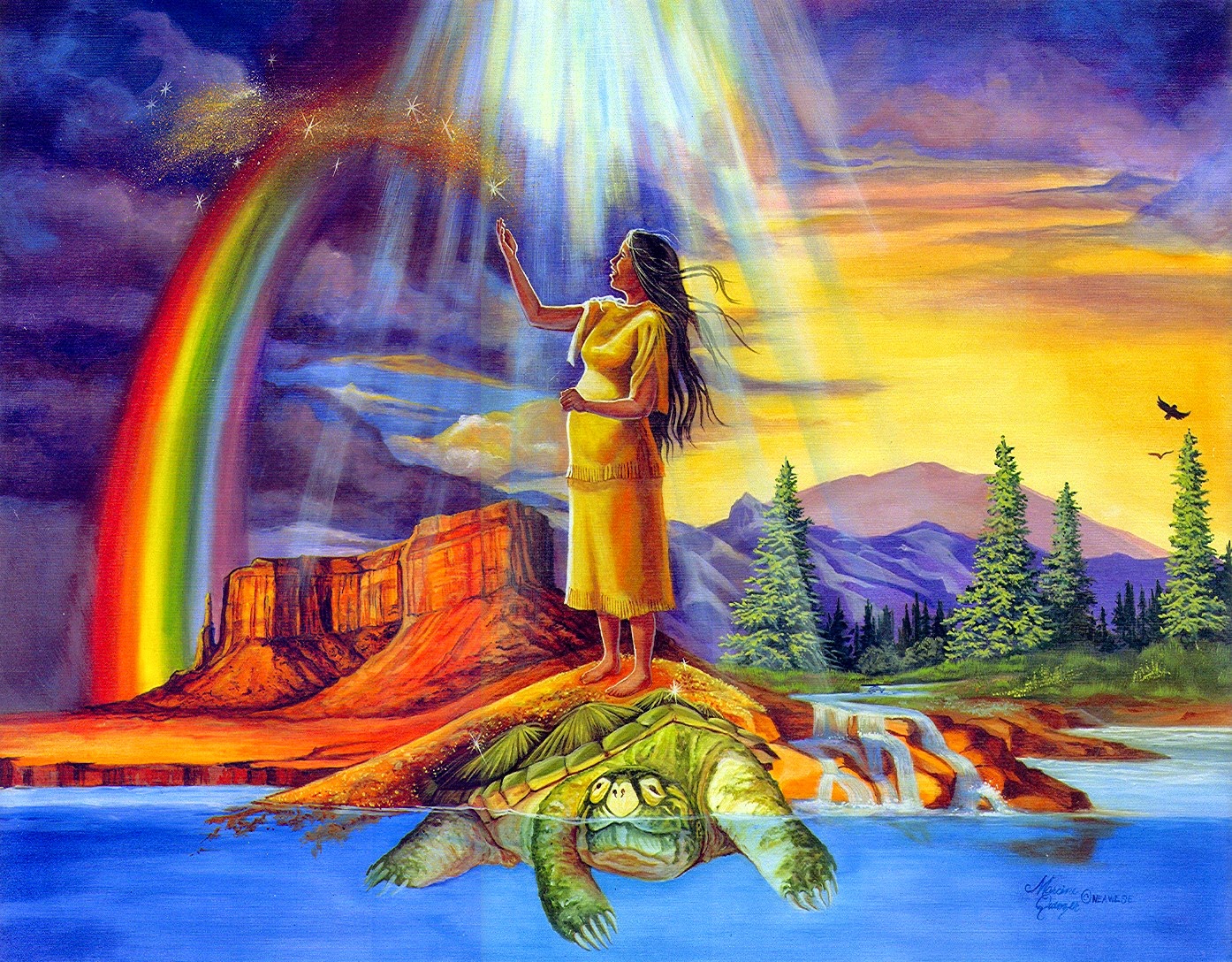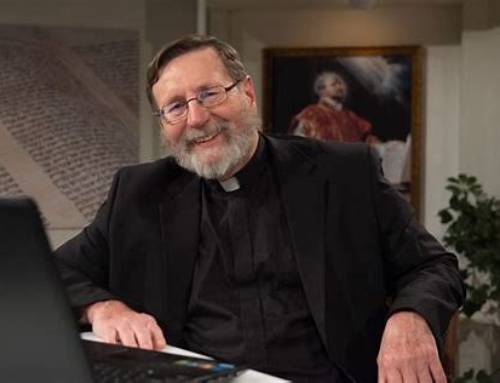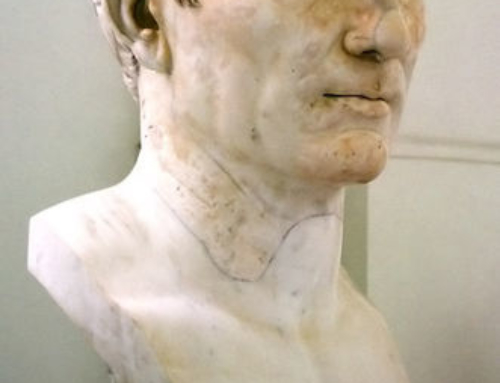Yesterday on ‘X’ I commented on a discussion about Biblical literalism observing that it was possible to hold to a historical Adam and Eve while acknowledging that the Genesis account was “essentially mythological”
This comment that Genesis was “essentially mythological” sparked further comments from folks for whom the word “myth”, when associated with the Bible, is clearly a red flag.
This is understandable as the word “myth” is commonly understood to as “a fictional fantasy story that is untrue.” Furthermore, the modernists Biblical scholars of the early twentieth century–suffering from their own misunderstandings of myth, tarnished the word even further by “demythologizing” the New Testament. They considered all supernatural stories in the Bible to be the product of myths that had developed from within the faith community. Their goal was to quietly rationalize, remove and re-interpret the miracle stories so as to make Christianity more “believable” to a modern audience. If you’re interested in the twentieth century study of myth and how it developed and influenced Biblical scholarship read this article of mine which goes into the history a bit more.
With all of this in mind, it’s understandable that for conservative Christians of all traditions to use the word “myth” in association with the Bible stories is to push some buttons and get a strong negative reaction.
However, I’m concerned to explain the more in depth meanings of myth and why a complete understanding of myth actually helps us to appreciate the Biblical text more fully, but before I move on to that–a brief comment about Biblical literalism. We should stop to remember that the Biblical documents are inspired by God, but they are also the products of a culture, mindset and historical context that is vastly different from our own.
The New Testament was written in Greek in the midst of the Roman Empire 2000 years ago. The Old Testament documents from an even earlier period–recording events and historical contexts that are 3, 4 and 5,000 years removed and taking place in the ancient Middle East in a culture totally alien to 21c. America. It takes even the most well educated of persons a good stretch of erudition and imagination to be able to place themselves into those stories and contexts and to understand them and learn from them. To simply read them as we read modern books is an impossible mistake.
How do we read modern books? We basically divide them up into fiction and non-fiction. A book is either “true” (by which we mean factual) or it is untrue (by which we mean a fictional story) We also read some non fiction that is about ideas and concepts. Still, although these books are not about facts we still trust them to be “true”.
This idea of literature would have been unthinkable to the ancient mind. First of all literacy was rare. “Literature” consisted of oral tradition: storytelling in some form. Studies of the largely Bedouin culture (which is in many ways the closest we can get to the mindset of the ancient Middle Eastern people of the Old Testament) show that they are concerned about the accuracy of their history. Being a mostly illiterate society they rely on memorization to pass on their history. However, the stories are also passed on orally through anecdote (which is informal and allows for exaggeration and minor changes) and “formal controlled” oral tradition–in which the story is re-told and the elders of the community monitor the story, to correct any modifications or major changes that may be creeping into the story.
These studies give the lie to the popular idea that the Middle Eastern peoples simply made up myths to supplement their religion. The development of myth is much more complex and interesting. It would seem instead that the pagan myths were imagined to make sense of the physical world the primitive peoples perceived. e.g. They saw lightning and imagined that there was a big guy up there on the other side of the clouds hurling lightning bolts. They gave him a name and worshipped him because he was big and powerful. In other words, the religion followed the myth making not vice versa.
This kind of myth is very different from the Bible stories. The creation myths of the ancient world and other primitive societies do not resemble the “creation myth” of Genesis in the least. However, we still refer to the early stories of Genesis as “myth” not because they are fanciful fictions made up by ancient people, but because they operate as a myth.
What do I mean by “they operate as a myth”? First to define myth in this wider sense: a myth may well be defined as “any story that embodies universal human themes, symbols and values” Note I am saying “any story” therefore the story that “embodies universal human themes, symbols and values” could be historical and factual or it could be fictional.
Here is a myth that is historical: On a wintry December day my grandfather was walking with his two sons–aged 10 and 12 to join his family at the local farmers’ market. A truck loaded with coal lost control on the icy road and came sliding towards the two boys. Grandpa jumped in and pushed them to safety, but the coal truck crushed his body against the guard rail. Some passersby folded him into a car and rushed him to hospital, and as they did his splintered ribs punctured his internal organs. My grandma stood by his bedside as the life drained from him. At the last moment his looked up into the corner of the hospital room, smiled and said, “Can’t you see them Esther? They’re so beautiful!” Then he passed.
This is a true story, but it has been handed down in our family and now has a kind of mythical importance. The story “embodies” fatherhood, family love, faith, self sacrifice, instant action, belief in the afterlife, angels, redemption etc. etc. etc. I say it functions as myth because it embodies these truths rather than stating them explicitly or didactically.
Myth is therefore present in our lives in the many different stories we experience in books, drama, film, anecdotes, family stories and more.
There is a bit more: In The Lord of the Rings movie Galadriel says, “History became legend and legend became myth.” History merges into legend when a historical story morphs and becomes a fixed and growing part of a culture. So the story of King Arthur, for example has become a legend. Historians believe there was a real historical figure called Arthur–a British chieftain during the time of Roman Britain. However, the story of King Arthur has morphed and grown and become more elaborate over the years so now it is present in umpteen versions, books, poems, films, paintings, TV shows, Broadway musicals and more.
A legend becomes myth when the audience is drawn to participate with the story in a personal way. This may happen when the story is dramatized for stage or in film and the audience is drawn into a psychological, emotional and personal participation in the hero’s story.
Legend becomes myth most powerfully when the story is part of a religious worldview and (most powerfully) part of religious ceremony in which the person participates. The rituals of religion become the way the individuals connect and join themselves with the events of the myth. It is interesting that in the primitive religions of the ancient Middle East. (for example) their creation myths were re-enacted religiously every Spring, thus believing that the fecundity of the earth would be renewed as they (led by their priests) re-enacted the creation myths symbolically.
Catholics do this when we participate in the “myth” of Jesus’ passion, death and resurrection during the annual liturgical cycle culminating in Holy Week.
So…saying all that to say this: This is why it is okay to say the stories of the Bible are “essentially mythological”. It doesn’t mean they are made up fantasy fiction. Instead they are history that became legend that became myth. Obviously some of the stories are closer to the historical and factual events than others, but it would be wrong in the case of the Bible to assume that the stories–not matter how seemingly incredible to modern ears–are total fabrications.
On the other hand, it is not wrong to accept that many of the stories, while rooted in historical events, have, over the years, grown and morphed within the oral re-telling until they were finally written down and thus solidified. Furthermore, the stories from the first twelve chapters of Genesis are rooted in events that are very ancient. That is why we say they are from “pre-history”. Nevertheless, I believe those stories to be grounded in real historical events and that the authors of the Old Testament intended them to be understood that way. That’s why they took the trouble to record the various genealogies from Adam onward–because they believed the story of our first parents really happened.
Did I say the Bedouin culture emphasized memorization as a way of accurately remembering their history? The two aspects of history they considered especially important to memorize were genealogies and historical stories communicated through poetry. We can conclude then, that while the early stories of Genesis function as “myth” they also record for us the stories of faith that are rooted in history.
Finally, why is this important? Because from the beginning the God of the Old Testament is involved with real people in real places in human history. This is unique among the religions of the world, and it comes to a climax in the incarnation of his Son–the World’s Redeemer in whose life the drama of salvation is played out and is, in C.S.Lewis’ words, “the myth that really happened.”







Leave A Comment
You must be logged in to post a comment.